Why Choose Nationwide Visas CRS Calculator?
- Check your Canada PR eligibility for free
- Know your score in under 60 seconds
- Tips to boost your CRS score
- Follow-up assistance from our immigration consultants
CRS Calculator 2025
You can use our tool to calculate your Comprehensive Ranking System (CRS) score. The final score will be based on the answer you provide above. The CRS Calculator will primarily assess your:
- Age
- Skills
- Language Proficiency
- Work Experience
- Other Factors
You can use this tool if you:
- Are eligible to apply for at least one of the three Express Entry Streams
- Are yet to create an Express Entry profile, but you want to calculate your CRS score instantly
- Were issued an ITA to apply for Canada PR, and you want to see if an update in your profile may affect your current CRS score.
How does the CRS Calculator work?
The CRS Score Calculator is a point-based system that Immigration, Refugees and Citizenship Canada (IRCC) uses to evaluate and score your profile to rank it in the federal Express Entry pool.
The point you get from the CRS Score Calculator includes a core set of up to 600 points and an additional set of up to 600 points. Your final score will be ranked out of 1,200.
A. Human Capital Factors
| Factors | Points per factor - With a spouse or common-law partner | Points Per Factor - Without a Spouse or Common-law Partner |
| Age | 100 | 110 |
| Level of Education | 140 | 150 |
| Official Languages Proficiency | 150 | 160 |
| Canadian Work Experience | 70 | 80 |
B. Spouse or Common-law Partner factors
| Factors | Points Per Factor(Maximum 40 points) |
| Level of Education | 10 |
| Official Languages Proficiency | 20 |
| Canadian Work Experience | 10 |
A. Human Capital factors + B. Spouse or Common-law Partner factors = Maximum 500 points (with OR without a Spouse or Common-law Partner)
C. Skill Transferability factors (Maximum 100 Points)
| Education | Points Per Factor (Maximum 50 points) |
| With good/strong official language proficiency and a post-secondary degree | 50 |
| With Canadian work experience and a post-secondary degree | 50 |
| Foreign Work Experience | Points Per Factor (Maximum 50 points) |
| With good/strong official language proficiency (Canadian Language Benchmark [CLB] level 7 or higher) and foreign work experience | 50 |
| With Canadian work experience and foreign work experience | 50 |
| Certificate of Qualification (for people in Trade Occupations) | Points Per Factor (Maximum 50 points) |
| With good/strong official language proficiency and a certificate of qualification | 50 |
A. Human Capital factors + B. Spouse or Common-law Partner + C. Skill Transferability factors = Maximum 600 points
D. Additional factors (Maximum 600 Points)
| Factors | Maximum Points Per Factor |
| Brother or Sister living in Canada (Citizen or Permanent Resident) | 15 |
French Language Skills
| 50
|
Post-secondary education in Canada
| 30
|
Arranged employment - TEER 0 Major Group 00
| 200
|
Arranged employment - NOC TEER 1, 2, or 3, or any TEER 0 other than Major Group 00
| 50
|
| Provincial Nomination | 600 |
A. Human Capital factors + B. Spouse or Common-law Partner factors + C. Skill Transferability factors + D. Additional points = Total (Your score) - Maximum 1,200 points
Calculate Your CRS Score
Comprehensive Ranking System calculator evaluates scores under the Canada Skilled Worker Points System.
Calculate Now CRS Score Calculator: Points Breakdown (Section by Section)
| Age |
| Age | With a Spouse or Common-law Partner (Maximum 100 points) | Without a Spouse or Common-law Partner (Maximum 110 points) |
| 17 years of age or less | 0 | 0 |
| 18 years of age | 90 | 99 |
| 19 years of age | 95 | 105 |
| 20 to 29 years of age | 100 | 110 |
| 30 years of age | 95 | 105 |
| 31 years of age | 90 | 99 |
| 32 years of age | 85 | 94 |
| 33 years of age | 80 | 88 |
| 34 years of age | 75 | 83 |
| 35 years of age | 70 | 77 |
| 36 years of age | 65 | 72 |
| 37 years of age | 60 | 66 |
| 38 years of age | 55 | 61 |
39 years of age
| 50
| 55
|
40 years of age
| 45
| 50
|
41 years of age
| 35
| 39
|
42 years of age
| 25
| 28
|
43 years of age
| 15
| 17
|
44 years of age
| 5
| 6
|
45 years of age or more
| 0
| 0 |
| Level of Education |
| Level of Education | With a Spouse or Common-law Partner (Maximum 140 points) | Without a Spouse or Common-law Partner (Maximum 150 points) |
| Less than secondary school (high school) | 0 | 0 |
| Secondary diploma (high school graduation) | 28 | 30 |
| One-year degree, diploma, or certificate from a university, college, trade or technical school, or other institute | 84 | 90 |
| Two-year program at a university, college, trade or technical school, or other institute | 91 | 98 |
| Bachelor's degree OR a three or more year program at a university, college, trade or technical school, or other institute | 112 | 120 |
| Two or more certificates, diplomas, or degrees. One must be for a program of three or more years | 119 | 128 |
| Master's degree, OR professional degree needed to practice in a licensed profession (For “professional degree,” the degree program must have been in medicine, veterinary medicine, dentistry, optometry, law, chiropractic medicine, or pharmacy.) | 126 | 135 |
| Doctoral level university degree (Ph.D.) | 140 | 150 |
| Official Languages Proficiency |
| First Official Language |
| Canadian Language Benchmark (CLB) level per ability | With a Spouse or Common-law Partner (Maximum 128 points) | Without a Spouse or Common-law Partner (Maximum 136 points) |
| Less than CLB 4 | 0 | 0 |
| CLB 4 or 5 | 6 | 6 |
| CLB 6 | 8 | 9 |
| CLB 7 | 16 | 17 |
| CLB 8 | 22 | 23 |
| CLB 9 | 29 | 31 |
| CLB 10 or more | 32 | 34 |
| Second Official Language |
| Canadian Language Benchmark (CLB) level per ability | With a Spouse or Common-law Partner (Maximum 22 points) | Without a Spouse or Common-law Partner (Maximum 24 points) |
| CLB 4 or less | 0 | 0 |
| CLB 5 or 6 | 1 | 1 |
| CLB 7 or 8 | 3 | 3 |
| CLB 9 or more | 6 | 6 |
| Canadian Work Experience |
| Canadian Work Experience | With a Spouse or Common-law Partner (Maximum 70 points)
| Without a Spouse or Common-law Partner (Maximum 80 points)
|
| None or less than a year | 0 | 0 |
| 1 year | 35 | 40 |
| 2 years | 46 | 53 |
| 3 years | 56 | 64 |
4 years
| 63
| 72
|
5 years or more
| 70
| 80
|
| Level of Education |
| Spouse’s or Common-law Partner’s Level of Education | With a Spouse or Common-law Partner (Maximum 10 points) | Without a Spouse or Common-law Partner (Does not apply) |
| Less than secondary school (high school) | 0 | N/A |
| Secondary diploma (high school graduation) | 2 | N/A |
| One-year degree, diploma, or certificate from a university, college, trade or technical school, or other institute | 6 | N/A |
| Two-year program at a university, college, trade or technical school, or other institute | 7 | N/A |
| Bachelor's degree OR a three or more year program at a university, college, trade or technical school, or other institute | 8 | N/A |
| Two or more certificates, diplomas, or degrees. One must be for a program of three or more years | 9 | N/A |
| Master's degree, OR professional degree needed to practice in a licensed profession (For “professional degree,” the degree program must have been in medicine, veterinary medicine, dentistry, optometry, law, chiropractic medicine, or pharmacy.) | 10 | N/A |
| Doctoral level university degree (Ph.D.) | 10 | N/A |
| Official Languages Proficiency |
| First Official Language |
| Spouse’s Canadian Language Benchmark (CLB) level per ability | Maximum 20 points for section Maximum 5 points per adaptability
| Without a Spouse or Common-law Partner (Does not apply) |
| CLB 4 or less | 0 | N/A |
| CLB 5 or 6 | 1 | N/A |
| CLB 7 or 8 | 3 | N/A |
| CLB 9 or more | 5 | N/A |
| Canadian Work Experience |
| Canadian Work Experience | Spouse’s Canadian Work Experience Maximum 10 points
| Without a Spouse or Common-law Partner (Does not apply)
|
| None or less than a year | 0 | N/A |
| 1 year | 5 | N/A |
| 2 years | 7 | N/A |
| 3 years | 8 | N/A |
4 years
| 9
| N/A
|
5 years or more
| 10
| N/A
|
| Education |
| With good official language proficiency (Canadian Language Benchmark Level [CLB] 7 or higher) and a post-secondary degree | Points for CLB 7 or more on all first official language abilities, with one or more under CLB 9 (Maximum 25 points) | Points for CLB 9 or more on all four first official language abilities (Maximum 50 points) |
| Secondary school (high school) credential or less | 0 | 0 |
| Post-secondary program credential of one year or longer | 13 | 25 |
| Two or more post-secondary program credentials AND at least one of these credentials was issued on completion of a post-secondary program of three years or longer | 25 | 50 |
| A university-level credential at the master’s level or at the level of an entry-to-practice professional degree for an occupation listed in the National Occupational Classification matrix at Skill Level A for which licensing by a provincial regulatory body is required | 25 | 50 |
| A university-level credential at the doctoral level | 25 | 50 |
| With Canadian work experience and a post-secondary degree | Points for education + 1 year of Canadian work experience (Maximum 25 points) | Points for education + 2 years or more of Canadian work experience (Maximum 50 points) |
| Secondary school (high school) credential or less | 0 | 0 |
| Post-secondary program credential of one year or longer | 13 | 25 |
| Two or more post-secondary program credentials AND at least one of these credentials was issued on completion of a post-secondary program of three years or longer | 25 | 50 |
| A university-level credential at the master’s level or at the level of an entry-to-practice professional degree for an occupation listed in the National Occupational Classification matrix at Skill Level A for which licensing by a provincial regulatory body is required | 25 | 50 |
| A university-level credential at the doctoral level | 25 | 50 |
| Foreign Work Experience |
| Foreign work experience - With good official language proficiency (Canadian Language Benchmark Level [CLB] 7 or higher) | Points for foreign work experience + CLB 7 or more on all first official language abilities, one or more under 9 (Maximum 25 points) | Points for foreign work experience + CLB 9 or more on all four first official language abilities (Maximum 50 points)
|
| No foreign work experience | 0 | 0 |
| 1 or 2 years of foreign work experience | 13 | 25 |
| 3 years or more of foreign work experience | 25 | 50 |
| Foreign work experience - With Canadian work experience | Points for foreign work experience + 1 year of Canadian work experience (Maximum 25 points) | Points for foreign work experience + 2 years or more of Canadian work experience (Maximum 50 points) |
| No foreign work experience | 0 | 0 |
| 1 or 2 years of foreign work experience | 13 | 25 |
| 3 years or more of foreign work experience | 25 | 50 |
| Certificate of Qualification (for people in Trade Occupations) |
| With good official language proficiency (Canadian Language Benchmark Level [CLB] 5 or higher) | Points for certificate of qualification + CLB 5 or more on all first official language abilities, one or more under 7 (Maximum 25 points) | Points for certificate of qualification + CLB 7 or more on all four first official language abilities (Maximum 50 points) |
| With a certificate of qualification | 25 | 50 |
| Additional points | Maximum 600 points |
| Brother or sister living in Canada who is a citizen or permanent resident of Canada | 15 |
| Scored NCLC 7 or higher on all four French language skills and scored CLB 4 or lower in English (or didn’t take an English test) | 25 |
| Scored NCLC 7 or higher on all four French language skills and scored CLB 5 or higher on all four English skills | 50 |
| Post-secondary education in Canada - credential of one or two years | 15 |
| Post-secondary education in Canada - credential three years or longer | 30 |
| Arranged employment - NOC TEER 0 Major group 00 | 200 |
| Arranged employment - NOC TEER 1, 2, or 3, or any TEER 0 other than Major Group 00 | 50 |
Provincial or territorial nomination
| 600
|
Minimum CRS score for Canada PR in 2025
The minimum CRS score required to apply for Canada PR in 2025 according to the Express Entry latest draw is 379.
There is no fixed score, but candidates with higher CRS scores have better chances.
The CRS score depends on factors such as Age, Education, Work Experience, Language Proficiency, and more. It is essential to regularly check official updates from Immigration, Refugees and Citizenship Canada (IRCC) or an immigration consultant, as CRS score requirements can change.
Latest Express Entry Draw 2024
Ways to improve points in CRS Score Calculator
There are several ways to improve your points in the CRS score calculator - and increase your chances of receiving an Invitation to Apply (ITA) in the next Express Entry draw are listed below.
Improve your language proficiency score
If you haven’t already achieved a high score in your language proficiency exam, you can retake the exam to boost your CRS score. For instance, if you secure CLB Level 9 in the language test, you can add a maximum of 136 points to your final score. Similarly, appearing in a French language test can add another maximum of 24 points to the CRS Score Calculator.
Receive a Provincial Nomination (PN)
If you manage to receive an ITA from any one of the 13 provinces and territories in Canada, you will be awarded 600 extra points to your profile in Express Entry. A provincial nomination effectively guarantees an invitation to apply for Canada PR. Some of the easiest Provincial Nominee Programs (PNPs) in Canada to apply for a nomination include Saskatchewan’s International Skilled Worker, Alberta’s Express Entry Stream, and Ontario’s Human Capital Priorities Stream.
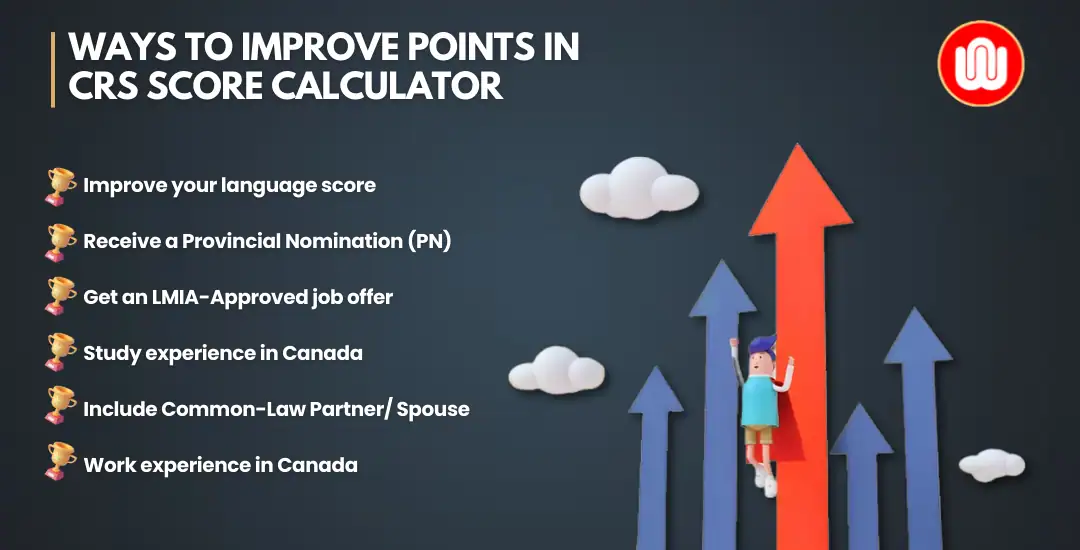
Get an LMIA Approved job offer
If you get a valid job offer from a Canadian employer, you can receive an additional 200 points to your final CRS score. But, your job offer must be LMIA (Labor Market Impact Assessment) approved. While it isn't easy to find a job in Canada, it is also not impossible.
Study experience in Canada
There were a total of 807,750 study permit holders in higher education by 2022 year-end. The Canadian education system has for a long time - proven to be the best among the study-abroad destinations in the world. You can get 15 to 30 CRS points for a Canadian education credential gained in Canada. Many newcomers choose to apply for a Post-Graduate Work Permit (PGWP) after studying in Canada for a while, which lets them gain Canadian work experience - which is a stepping stone for Canada PR.
Include Common-Law Partner/ Spouse
Immigrating to Canada your Common-law Partner or Spouse in the application will fetch you extra points. The language proficiency of the Common-law Partner or Spouse can get a maximum of 20 points, while their work experience and education in Canada will fetch them 10 additional points individually. In total, you can add a maximum of 40 extra points to your final CRS score.
Work experience in Canada
You can add a maximum of 150 points to your CRS score if you have documented full-time work experience in Canada and abroad. This will be points for foreign work experience + Canadian work experience. Check out the Canada occupation in-demand list 2025 to find a job that best matches your work experience.
Need Help?
Talk to an Expert
Eligibility Calculator for Provincial Nominee Programs (PNPs)
Saskatchewan PNP | Labour Market Success |
| Selection Factors | Maximum Points
|
| Education and Training | 23 |
| Skilled Work Experience | 15 |
| Language Ability | 20 |
Age
| 12
|
| Connection to Saskatchewan Labour Market & Adaptability |
| Selection Factors | Maximum Points
|
| High-skilled employment offer from a Saskatchewan employer | 30 |
| Close family relative in Saskatchewan | 20 |
| Past work experience in Saskatchewan | 5 |
| Past student experience in Saskatchewan | 5 |
Calculate CRS score instantly: Saskatchewan PNP Points Calculator
| Economic Factors |
| Selection Factors | Maximum Points
|
| Skill Level of the B.C. Job Offer | 60 |
| Wage of the B.C. Job Offer | 50 |
| Regional District of Employment | 10 |
| Human Capital Factors |
| Selection Factors | Maximum Points |
| Directly Related Work Experience | 25 |
| Highest Level of Education | 25 |
| Language | 30 |
Calculate CRS score instantly: BC PNP Points Calculator
| Human Capital Factors |
| Selection Factors | Maximum Points |
| First Language Proficiency | 20 |
| Second Language Proficiency | 5 |
| Age | 10 |
Work Experience (in the past five years)
| 15
|
Education
| 25
|
| Adaptability Factors |
| Selection Factors | Maximum Points |
| Close relative in Manitoba | 20 |
| Invitation to Apply received from MPNP as part of recruitment mission or exploratory visit | 20 |
| Previous work experience in Manitoba (at least six months) | 12 |
| Completed post-secondary program of two years or more in Manitoba | 12 |
Completed post-secondary program of at least one year in Manitoba
| 10
|
Friend or distant relative living in Manitoba
| 10
|
Bonus: Intention to reside outside Winnipeg
| 5
|
Calculate CRS score instantly: Manitoba PNP Points Calculator
| Human Capital Factors |
| Selection Factors | Maximum Points |
| Education | 25 |
| Language Proficiency | 28 |
| Work Experience | 15 |
Age
| 12
|
Arranged Employment in Nova Scotia
| 10
|
| Adaptability Factors |
| Selection Factors | Maximum Points |
| Arranged employment (principal applicant only) | 5 |
| Your previous study in Nova Scotia | 5 |
| Your accompanying spouse or common-law partner’s previous study in Nova Scotia | 5 |
| Your previous work in Nova Scotia | 10 |
Your accompanying spouse or common-law partner’s previous work in Nova Scotia
| 5
|
Relatives in Nova Scotia
| 5
|
Your accompanying spouse or common-law partner’s level of language proficiency
| 5
|
Calculate CRS score instantly: Nova Scotia PNP Points Calculator
| Human Capital Factors |
| Selection Factors | Maximum Points
|
| Language Proficiency | 28 |
| Education | 25 |
| Work Experience | 15 |
Age
| 12 |
Arranged Employment in Canada
| 10 |
| Adaptability Factors |
| Selection Factors | Maximum Points |
| PA previous work in Canada (minimum of 1 year in skilled occupation NOC type 0, A or B) | 10 |
| Relatives in Canada 18 years or more who are residing in Canada and is a Canadian citizen or permanent resident | 5 |
| Accompanying spouse/partner's official language (CLB/NCLC 4) | 5 |
| A previous study in Canada | 5 |
A previous study in Canada - accompanying spouse/partner
| 5 |
Previous work in Canada - accompanying spouse/partner
| 5 |
Arranged employment in Canada
| 5 |
Relative in Canada - 18 years or older
| 5 |
Language ability CLB 4 or above-accompanying spouse/partner (IELTS 4.0/4.5/3.5/4.0)
| 5 |
Calculate CRS score instantly: Alberta PNP Points Calculator
| Human Capital Factors |
| Selection Factors | Maximum Points |
| Language Proficiency | 28 |
| Education | 25 |
| Work Experience | 15 |
Age
| 12 |
Arranged Employment in Canada
| 10 |
| Adaptability Factors |
| Selection Factors | Maximum Points |
| Arranged employment (principal applicant only) | 5 |
| Candidate's previous study in Ontario | 5 |
| Spouse or common-law partner’s previous study in Ontario | 5 |
| Candidate's previous work in Ontario | 10 |
Spouse or common-law partner’s previous work in Ontario
| 5 |
Relatives in Ontario
| 5 |
Arranged employment in Canada
| 5 |
Relative in Canada - 18 years or older
| 5 |
Spouse or common-law partner’s level of language proficiency
| 5 |
Calculate CRS score instantly: Ontario PNP Points Calculator
| Human Capital Factors |
| Selection Factors | Maximum Points
|
| Education | 14 |
| Area Of Training | 12 |
| Validated Employment Offer | 14 |
Work Experience
| 8
|
Language Proficiency
| 22
|
| Adaptability Factors |
| Selection Factors | Maximum Points
|
| Stay And Family In Quebec | 8 |
| Spouse/Common-law partner Characteristics | 17 |
| Presence Of Accompanying Children | 8 |
| Financial Self-Sufficiency | 1 |
How Nationwide Visas Can Help You?
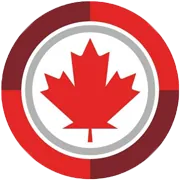
CICC
Registered

Hand Holding
Support

True &
Transparent

Process Time
9-12 Months
We at Nationwide Visas have assisted thousands of individuals to successfully immigrate to Canada with their families through the Federal Express Entry Program. Our qualified and experienced Immigration Experts are equipped with the proficiency to accurately assess your case and advise the most suitable course of action for best serving your needs.
Nationwide has accumulated a treasure of goodwill and exhaustive experience over the last 17+ years in this dynamic immigration industry and has constantly facilitated a wide range of aspiring immigrants to achieve their overseas goals.
We are among the top-most brands in the Immigration sector being a highly reliable immigration firm with an outstanding track record of several thousands of triumphant PR Visa applications. The following major factors make us the Best Immigration Consultant in India :
Our Consultation is offered by authorized and licensed Immigration Consultants
Step-by-Step guidance through eligibility and process
We maintain a Secure Online Process & transparency
System of Complaint Redress for any process
Experience of having processed more than 30,000 applications
Every Case is assessed multiple times before submission
Easy evaluation of the qualifications and other skills
Get a call within 55 seconds














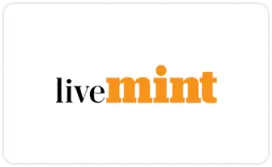


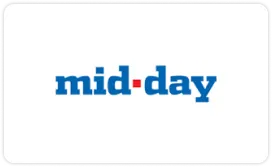
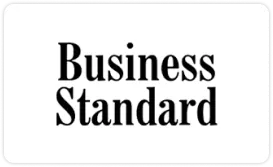















.webp-61728368848.webp)